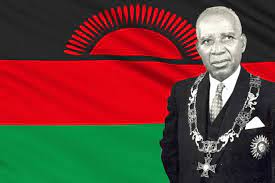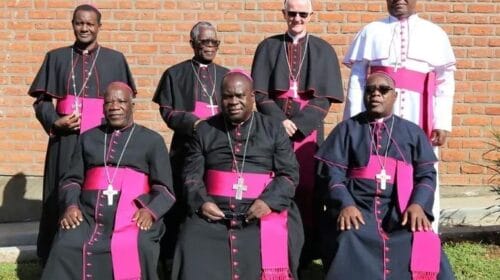How To Retire Old And Expired Politicians From Public Office In Nigeria By Jude Feranmi
On the 26th of June, 2018, a young lady, who had run a very popular campaign and appealed to young people, who wanted hope and change in the way they were governed was declared the winner of an election against an incumbent member of parliament who had not just spent 10 terms in the US Congress, but was actually a contender for speakership. Her name is Alexandria Ocasio Cortez, AOC. She is now one of the most popular names in the United States Congress and has gone to propose radical policy changes to the extent she is now being branded a socialist.
Let us back track for a bit and try and imagine this scenario in Nigeria and how feasible it is for a young female candidate to defeat a member of the House of Representatives who has been in office since 1999 and is next in line for the speakership – which is not even up to 10 terms – in a primary election in one of the two most formidable parties in the country – APC or PDP. This story of victory which everyone would like to at least hear is simply impossible in our country today. It does not matter the ideas, the energy, vigor of campaign and debatably even funding that the candidate might have.
Why is this not possible in Nigeria? The simple answer is in the nature of our elections in the country. While this answer is a simple one, the solution itself is not a simplistic solution. As National Youth Leader of KOWA Party and one of the founding members of a coalition of all political party youth leaders at the time of the #NotTooYoungToRun campaign, I led a few initiatives to support the effort to reduce the age of candidates running for office in Nigeria, led by Mr Samson Itodo of YIAGA and other civil society organisations. It is now two years since President Buhari signed the amendment. In engaging during this advocacy period, a lot of young people who were indifferent to the bill simply said it does not matter the age of those running for office, there were more fundamental problems and barriers that limit youth participation in public office.
In actual fact, the title of this piece is more an answer to Mr Samson’s question on Twitter when he asked, “how do we retire our old and expired politicians?” If anything is clear, it is that our old and exhausted politicians simply won’t give way and they have mastered the art of elections in Nigeria to ensure that they or their offspring continue to hold public office, even if the country continues to grow poorer and poorer by the day with no new ideas. While their ideas are mostly expired and their governance energies are exhausted, it appears as though they are renewed every morning in their energy to continue to win elections using this current electoral methodology.
Until another nationwide advocacy for robust electoral reforms is done and successful, young Nigerians who are interested in truly serving the people and offering ideas to get our country to a much better developed state can forget about getting elected. The barriers to participation in the electioneering process is simply too tall for any young average Nigerian with just ideas to scale through.
The first barrier that most young people quote is the cost of the nomination forms for the political parties. Why should anyone have to go break the bank just because they want to serve the people? The cost of nomination fees is ridiculously high for such an endeavour. While money plays a role in politicking and as it has been since the beginning of time – those with more resources have a higher influence on how society is ordered or in the direction that any society goes – the official role that money plays in our politics is what leads to the ‘do or die’ nature of our politics and the massive corruption practice in government contracts and white elephant projects akin to constructing a bridge in a desert. For young people and women, this barrier is just too high. That the current proposed amendment has now put a cap on the amount that parties can collect for nomination fees is a good step in the right direction and a clause that must be defended during the town hall meetings.
Another practice that makes the kind of stories that are now being told of AOC impossible in Nigeria is the critical issue of internal democracy in our political parties. As a youth leader, I have heard scores of young people say they are not ready to wait for years in queue because for every role that they can aspire to reasonably, there is a line of candidates expected to be imposed on the members of the party as their candidate and until that it is their turn, they can’t run for office. This lack of internal democracy not just in the practice of imposing candidates on the party members but also in the manner that the primary elections are conducted makes it almost impossible for any candidate to emerge outside of the candidates that the godfathers of the party have ‘anointed’. It is not uncommon to hear that parties in fact replace names of candidates even after primary elections are conducted, in the presence of INEC officials and winners declared, at times in cahoot with a few officials of the commission.
The current electoral reforms proposed by the deputy senate president includes clauses that seek to limit imposition of candidates and this ongoing malpractice. More specifically, it includes a process for electing delegates in political parties that choose to nominate their candidates through indirect primaries. What will be a good thing to see is a clause that includes a requirement for all parties who choose to elect these Ad-hoc delegates to publicly announce the date, time and venue of its Ad-hoc delegates election to all members of the party and members of the public through the media channel for a required number of times, to which they would not be allowed to change that venue or in the event that the venue is changed, the elections of all those ad-hoc delegates declared null and void.
The way that democracy has been trampled within the political parties today has been to use delegates who are never elected but selected by godfathers and the list of their names never shared to any of the aspirants. The infamous story of Prof Pat Utomi not knowing the venue of the primary election in his party even on the day of the election is a popular one, even though, denied by him already. However, this is a common practice.
Another clause that will be good to see will be a requirement that mandates the loss of delegateship and the nullification of such ad-hoc delegate’s vote in any election if evidence can be provided to the electoral offences commission that such delegate has been induced to vote for a particular candidate either through monetary terms or through gifts. This can be done! In countries where the jury is a part of their legal system, if an opposing counsel can prove that a member of the jury has been compromised in any way, such a member of the jury is dropped. Why can’t we do that here as well with potential Ad-hoc delegates who usually assume important powers and the willingness to exchange such for monetary benefits?
Another issue which appears to be the most important and greatest barrier of all is the election process itself on the day that voters line up to vote. As things stand today, the winner of any election in Nigeria is usually the craftiest and the person willing to go to any length – including killing voters – to win the election. Every step of the process can be hijacked by those who have already hijacked the state apparatus. This is not to say that every election in Nigeria is flawed. In instances where candidates both respect the rule of law and are willing to go through a process for the people, the processes are respected – not because it cannot be compromised, but because the players have decided to play by the rules. I am convinced that the only process that the only fool-proof electoral process in Nigeria today is one in which voters are accredited electronically, the votes are collated electronically, and the transmission of votes from the polling unit to the central collation center is done electronically. Anything short of this sustains the status quo and reinforces the hold on power of our old, exhausted and expired politicians.
The current reform proposed in the House of Assembly includes a clause that allows INEC to adopt electronic voting but stops short at any recommendation of what the modalities of this electronic voting is going to look like. Some even argue that the use of the card reader is already some form of electronic voting and the introduction of a national server in the clause also alludes to some form of electronic voting. These details need to be ironed out in clear terms. The bill also needs to include auditory processes for the servers to be used by independent firms so that the software being used is not compromised. The card readers according to some can be manipulated. The current bill needs to do justice to these kind of scenarios.
There are other issues about our electoral process that I can definitely go ahead to discuss in this piece – the electoral violence and the inability of INEC or the Nigeria Police to do anything about such violence, the state capture of the judiciary by incumbents who now have a way to just wait at court of appeals to steal elections through lawyers who have now made this their seasonal pie of the national cake and the practice of vote buying that is now a norm rather than an abnormality that no one wants to talk about.
President Buhari has made public commitments to electoral reforms in the last two years, even though he has refused to publicly admit the flawed election that got him re-elected. The National Assembly leaders have also made public commitments to electoral reforms both in writing and in speeches. The Nigerian people, especially young Nigerians and youth-led civil society organisations must now also organise and commit to ensuring that these public commitments see the light of day in the form of a robust and comprehensive Electoral Amendment Bill 10 years after it was enacted.
Jude Feranmi is the Convener of Raising New Voices Initiative and can be reached at [email protected]





